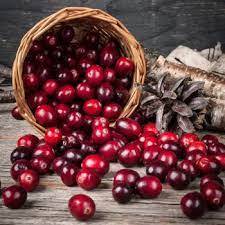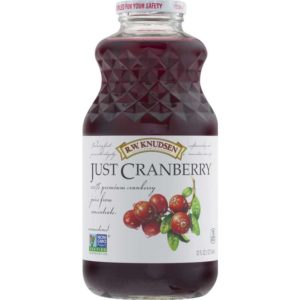
Diagnosed with Cancer? Your two greatest challenges are understanding cancer and understanding possible side effects from chemo and radiation. Knowledge is Power!
Learn about conventional, complementary, and integrative therapies.
Dealing with treatment side effects? Learn about evidence-based therapies to alleviate your symptoms.
Click the orange button to the right to learn more.
- You are here:
- Home »
- Blog »
- non-conventional therapies »
- Cranberries- Heart, Brain, Bladder, Immune Health
Cranberries- Heart, Brain, Bladder, Immune Health

“Researchers have found that eating cranberries could improve brain health, ward off dementia, and reduce ‘bad’ cholesterol…”
If you’re here, reading posts on PeopleBeatingCancer, chances are you are a cancer survivor/caregiver, are managing side effects from cancer, and/or are managing heart or brain health.
At this point in my life as a cancer survivor, I spend as much time managing my risk of cancer relapse as I do managing my long-term and late stage side effects including chemobrain, cardiomyopathy, nerve damage, etc.
While many of the people I communicate with in various online groups give nutrition a boost, we do so without many specifics.
I have spent years researching evidence-based but non-conventional nutritional supplements such as
- Curcumin
- Resveratrol
- Green tea extract (ECGC)
- Omega-3 fatty acids
- Vitamin D3, etc, etc.
While nutritional supplementation is central to managing multiple myeloma, my heart health, brain health, etc. it is only one piece of the evidence-based but non-conventional health puzzle. At this point in my MM journey, I spend a lot of time and money on nutritional supplementation. While this is important, I think it’s time for me to write about specific types of nutrition.
This blog post is my first attempt to research and post about those foods that have been shown to promote heart, brain, bladder and immune health.
According to research, cranberries are exceptionally nutritious and promote brain, heart, bladder and immune health. My daily ingestion of cranberries is about 8-10 ounces of unsweetened cranberry juice. I don’t know any other way of ingesting cranberries.
There are several different brands of unsweetened cranberry juice. Cranberry juice is extremely tart. I have to mix in other juices with my unsweetened cranberry juice to create a palatable juice. My local Heinen’s sells freshly squeezed grapefruit and orange juice. Expensive but great tasting.
I find myself drinking this juice blend morning, noon and night. Good and good for you…
If you have any questions or comments about nutrition please scroll down the page post a question or a comment and I will reply to you ASAP.
Click now to learn more about brain health
Thank you,
David Emerson
- Cancer Survivor
- Cancer Coach
- Director PeopleBeatingCancer
Recommended Reading:
- Multiple Myeloma- Intravenous Vitamin C Therapy
- Conventional, Integrative and Alternative-Multiple Myeloma Cancer Coaching-
- CR or VGPR Makes NO Difference in Newly Diagnosed Multiple Myeloma
How cranberries could improve memory and ward off dementia
“Researchers have found that eating cranberries could improve memory, ward off dementia, and reduce ‘bad’ cholesterol. The research team studied the benefits of consuming the equivalent of a cup of cranberries a day among 50 to 80-year-olds…
“Past studies have shown that higher dietary flavonoid intake is associated with slower rates of cognitive decline and dementia. And foods rich in anthocyanins and proanthocyanidins, which give berries their red, blue, or purple colour, have been found to improve cognition…
“The cranberry group also exhibited a significant decrease in LDL or ‘bad’ cholesterol levels, known to contribute to atherosclerosis — the thickening or hardening of the arteries caused by a build-up of plaque in the inner lining of an artery. This supports the idea that cranberries can improve vascular health and may in part contribute to the improvement in brain perfusion and cognition…
What are the health benefits of cranberry juice?
“Some research has found that cranberry juice may prevent infections, delay or reduce the severity of chronic disease, and prevent age-related oxidative damage. For most healthy people, cranberry juice is safe…
Research into the benefits of cranberry juice is mostly preliminary, but the antioxidant and antibacterial benefits look promising.
Most people can safely include cranberry juice in their diets, and they are adding a serving of fruit to their diet when they do so…
Six benefits of drinking cranberry juice
1. Fighting age-related damage-
Chemicals called free radicals accumulate in the body as people age. Free radicals cause oxidative damage. There is a link between oxidative damage and health issues, including:
- cancer
- diabetes
- heart disease
- digestive health
- urinary tract health
2. Improving heart health
Studies show that various ingredients in cranberry juice may improve heart health.
Cranberries are high in chemicals called polyphenols that may support heart health. A 2011 study of females with metabolic syndrome found that cranberry juice increased the antioxidants in the blood plasma. People who drank cranberry juice also had lower low-density lipoprotein (LDL). LDL is known as the “bad” type of cholesterol.
Another 2011 studyTrusted Source found that cranberry juice could improve health in people with coronary artery disease. Mean carotid-femoral artery pulse wave velocity, which is a way to measure the stiffness of arteries, was reduced among the people in the study who drank a laboratory preparation of double-strength cranberry juice.
3. Treating or preventing urinary tract infection (UTI)
The antibacterial effects of cranberry juice were reported to reduce the incidence of UTIs in mice, according to a 2017 study in Frontiers in MicrobiologyTrusted Source.
The reduction of UTI incidence is thought to be due to the ability of antibacterial properties to reduce the colonization of Escherichia coli in the bladder. The bacteria, which is known better as E. coli, is the cause of most UTIs…
4. Supporting digestive health
There is growing evidence that the phytochemicals contained in cranberries play an important role in digestive health.
Evidence for the digestive health benefits of cranberry juice, in addition to other benefits, was reported in a study from 2018 in the Journal of the Science of Food and AgricultureTrusted Source…
5. Preventing infections
Some chemicals in cranberries may help fight viruses and bacteria.
A 2011 study found that cranberries inhibited the growth of seven bacterial microbes. The study did not assess whether cranberries or cranberry juice could prevent infection with these microbes in humans.
Similarly, a 2010 study found that cranberries could fight some viruses, including norovirus, which is a common cause of food-borne illness.
The authors of the study caution that more research is needed, but argue that cranberries might be a useful method of treating or preventing food-borne illness.
6. Supporting post-menopausal health
The risk of heart problems increases after menopause compared to the risk in all other groups of people of the same age…
Some research has found that cranberry juice may interact with certain medications. One concern is that cranberries may intensify the effects of a blood thinner called warfarin…”


